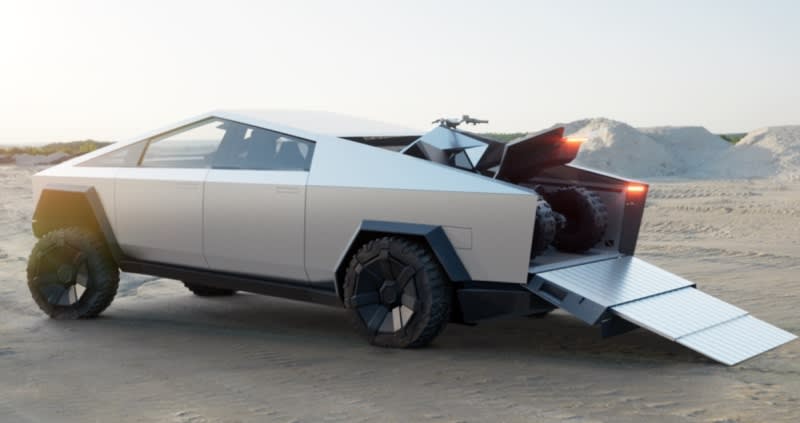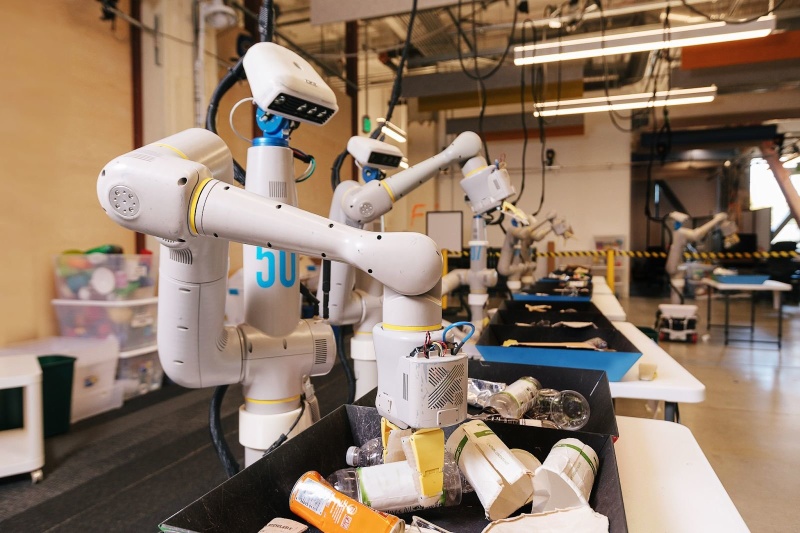Just in time for Black Friday.Check out Engadget’s new deals hub!
This week — nay, month — has already gotten a little intense in the lead-up to Black Friday, with some brands and retailers having launched “preview” sales the first week of November. Sheesh. Anyhow, you’re going to be seeing us pay more attention to price drops going forward, so much so that we thought it was time we created a hub where all of our deals-related posts could be easily discoverable in one place.
Is it still rendering?Tesla’s Cybertruck
I still don’t know what to make of Elon Musk’s latest electric vehicle, but it really rolled out on stage Thursday night looking like… that. Roberto Baldwin’s ridealong showed what it’s like to get inside one, while Elon Musk’s tweets the next day revealed how that window test was supposed to work, and that the Cyberquad zero-emissions ATV will be available as an accessory.
Last one before our Thanksgiving break next week.Engadget Podcast: Google Stadia and the future of game streaming services
This week, we discuss the uneven launch of Google’s Stadia cloud-based games service. Our senior editor and resident games expert Jessica Conditt joins us to share what she thought of the service, how it fares against Microsoft’s xCloud and what she thinks of streaming games in general. Listen in via SoundCloud, Apple Podcasts or Pocket Casts.
The leap from good to great.Jabra Elite 75t wireless earbuds review
Jabra’s latest true wireless earbuds are significantly smaller and last 2.5 hours longer than 2018’s Elite 65t. These Elite 75t buds also sound better, but they don’t have active noise cancellation or a wireless charging case (yet). If you’re willing to live without those features, then at $180 they’re cheaper than challengers like Apple’s AirPods Pro or Sony’s WF-1000XM3,
Some of you can relate.Valve has made me believe in Half-Life again
The shocking return of Valve’s flagship franchise this week has presented Gordon Freeman fan Nathan Ingraham a roller coaster of emotions. “Half-Life is back… but it’s a prequel… The trailer looks fantastic… but I need to find hundreds of dollars to get a rig so I can play it. I really want to play it, and ultimately, I think I’m going to have to get on board with VR.”
It’s impressive, but the game selection is expensive and underwhelming. Google Stadia has landed
Google promised a lot with its streaming game service, and it delivered on most of it. With Stadia, you can stream and play AAA titles like Destiny 2, Red Dead Redemption 2 and, well, 20 other games. We’ve been playing the new service for a week, and while it all hinges on how fast your home internet works, these games work. Jessica Conditt explains all.
Developing new robots after splitting with Boston Dynamics.Alphabet’s rebooted robotics program starts with trash-sorting machines
In a new blog post and subsequent profile by Wired, Hans Peter Brondmo, general manager of Alphabet’s X robotics project, explained that engineers are now focusing on the creation of robots that interact with people in meaningful ways and perform useful tasks.
Straight out of science fiction.Human patient put in suspended animation for the first time
The idea that the functions of the human body can somehow be put on “pause” while life-saving medical procedures are performed (or a person is sent into space, a la Alien) has long seemed untenable — until now. According to New Scientist, doctors have successfully placed humans in suspended animation for the first time, in a trial that could have an enormous influence on the future of emergency-room surgery.
The technique is officially called emergency preservation and resuscitation (EPR) and is being tested at the University of Maryland Medical Center on patients that arrive with acute trauma, such as a stab or gunshot wound. With EPR, the patient is cooled rapidly by replacing their blood with ice-cold saline — the heart stops beating and brain activity almost completely stops. With chemical reactions in cells slowed down, a surgical team has two hours to work on the patient’s injuries before they’re warmed up and their heart is restarted. Full results of the trial are expected to be announced by the end of 2020.
But wait, there’s more…
- Amazon’s ‘Lord of the Rings’ TV show is already renewed for season two
- Samsung Galaxy S11 renders show an even more complicated camera array
- Ford’s Mustang Mach-E straddles the world of EVs, SUVs and muscle cars
- Everything Disney+ is adding in 2019
- MacBook Pro 16-inch review: The ultimate Apple laptop
- Watch the first trailer for HBO’s ‘Avenue 5’ sci-fi space comedy
- Trump ‘opens’ Texas Apple plant that’s built Mac Pros since 2013
- Weber embraces modern grilling with a WiFi-enabled pellet model
- What we’re buying: TCL’s 2019 6-Series 4K Roku TV
- Solar energy ‘breakthrough’ could replace fossil fuels in some industries
- SpaceX’s first Starship pops its top during a ‘pressure test’ in Texas
- Bollinger’s badass EV utility trucks arrive in 2021
The Morning After is a new daily newsletter from Engadget designed to help you fight off FOMO. Who knows what you’ll miss if you don’t Subscribe.
Craving even more? Like us on Facebook or Follow us on Twitter.
Have a suggestion on how we can improve The Morning After? Send us a note.
In this article:
art, av, entertainment, gadgetry, gadgets, gear, mobile, personal computing, personalcomputing, robots, themorningafter, transportation
All products recommended by Engadget are selected by our editorial team, independent of our parent company. Some of our stories include affiliate links. If you buy something through one of these links, we may earn an affiliate commission.

Comments

606
Shares










